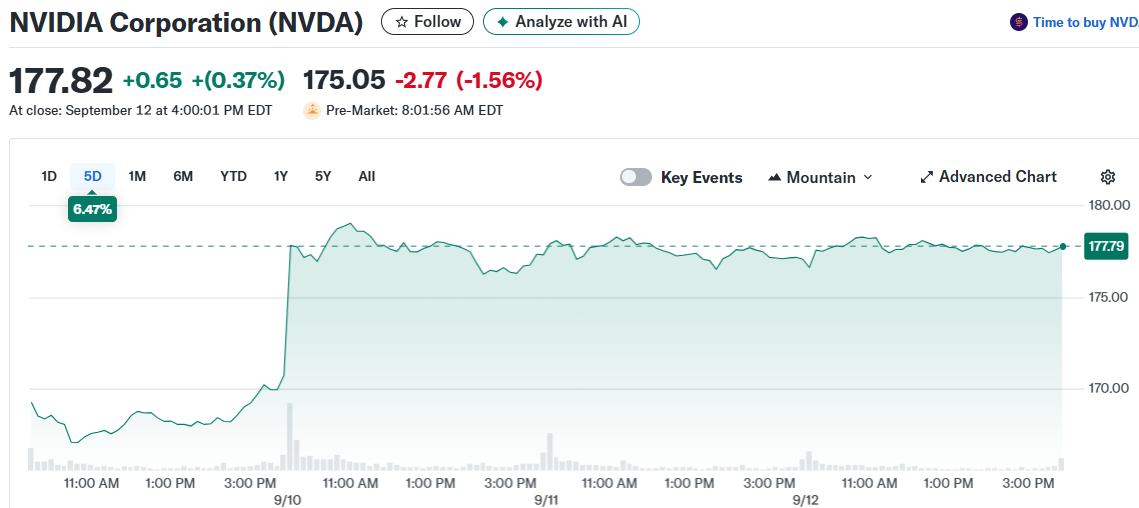TLDR
- China ruled Nvidia violated anti-monopoly laws with its 2020 Mellanox acquisition
- NVDA stock fell 2% in pre-market trading after the announcement
- Ruling comes during critical US-China trade negotiations in Madrid
- Beijing originally approved the $7 billion deal with conditions in 2020
- Investigation launched in December 2024 targeting the world’s most valuable company
China’s State Administration for Market Regulation ruled that Nvidia Corporation violated anti-monopoly laws in its 2020 acquisition of Mellanox Technologies. The preliminary investigation finding sent NVDA stock down 2% in pre-market trading.

The ruling comes as US and Chinese officials conduct sensitive trade talks in Madrid. The timing adds pressure during these crucial negotiations between the world’s two largest economies.
Nvidia stock price has been volatile this year due to ongoing geopolitical tensions. The company acquired Israeli networking firm Mellanox for $7 billion in 2020, with China’s initial approval.
Beijing Targets Tech Giant During Trade Talks
China’s market regulator opened the Nvidia investigation in December 2024. The probe examined whether the chipmaker met conditions set during the original Mellanox deal approval.
Beijing required Nvidia not to discriminate against Chinese companies when approving the acquisition. The regulator did not specify exactly how Nvidia allegedly breached these anti-monopoly requirements.
NVDA shares have faced pressure from escalating US-China tech tensions throughout 2025. The US government banned Nvidia from selling advanced AI chips to Chinese companies, citing national security concerns.
Over the weekend, China launched additional investigations targeting US semiconductor companies. Texas Instruments shares also fell 2% in pre-market trading following related announcements.
Market Impact and Future Investigations
The preliminary ruling leaves uncertainty about potential penalties or remedies China might seek. Beijing said it would continue investigating Nvidia further beyond this initial finding.
Nvidia dominates the global market for AI chips essential to artificial intelligence development. Companies including Meta Platforms and emerging AI firms rely on Nvidia processors for their operations.
The chipmaker redesigned products twice to comply with US export restrictions while maintaining Chinese market access. Nvidia’s H20 chip was specifically designed for the Chinese market under these constraints.
Last month, Nvidia reached a deal allowing resumed chip sales to China. The agreement requires the company to give 15% of Chinese revenue to the US government.
CEO Jensen Huang has advocated for maintaining Chinese market access, estimating the country’s AI market could reach $50 billion within three years. He warned that domestic competitors like Huawei would fill any void left by American companies.
The Madrid trade talks lasted nearly six hours on their first day, covering topics from TikTok to global economic issues. Officials are discussing potential meetings between President Trump and Xi Jinping as early as October.
Trump commented Sunday that talks are “going fine” but noted TikTok’s fate depends on Beijing’s actions. The popular app faces a deadline this week regarding its US operations.
China’s ruling represents another escalation in technology tensions between the superpowers. The investigation outcome could influence broader trade relationship developments and Nvidia stock performance going forward.





